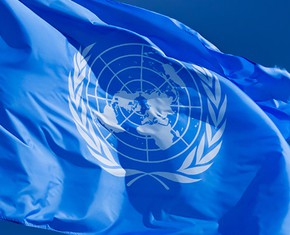The views expressed in our content reflect individual perspectives and do not represent the authoritative views of the Baha'i Faith.
Words can wound. They can cut much deeper than a knife, penetrate to the core of the heart like a bullet, and leave an injury that never heals.
What ordnance do some possess in the munitions cache of their words, with sharpened tongues of knives and swords to cut down opponents midstream, bursts of verbal vitriol to put someone in their place immediately, shotgun blasts of shouted pronouncements supposed to be taken as “God’s honest truths?”
Baha’is don’t carry weapons unless absolutely necessary:
Baha’u’llah confirms an injunction… which makes it unlawful to carry arms, unless it is necessary to do so. With regard to circumstances under which the bearing of arms might be “essential” for an individual, Abdu’l-Baha gives permission to a believer for self-protection in a dangerous environment. Shoghi Effendi in a letter written on his behalf has also indicated that, in an emergency, when there is no legal force at hand to appeal to, a Baha’i is justified in defending his life. There are a number of other situations in which weapons are needed and can be legitimately used; for instance, in countries where people hunt for their food and clothing, and in such sports as archery, marksmanship, and fencing.
On the societal level, the principle of collective security enunciated by Baha’u’llah, and elaborated by Shoghi Effendi does not presuppose the abolition of the use of force, but prescribes “a system in which Force is made the servant of Justice,” and which provides for the existence of an international peace-keeping force that “will safeguard the organic unity of the whole commonwealth.” …Baha’u’llah expresses the hope that “weapons of war throughout the world may be converted into instruments of reconstruction and that strife and conflict may be removed from the midst of men.” – the Universal House of Justice, note 173 in Baha’u’llah’s Most Holy Book, p. 241.
Unarmed with physical weapons, Baha’is also try to de-weaponize their words. Kindness, “… the Lodestone of the heart,” marks the true Baha’i path to others’ acceptance of what we have to say, and how we express ourselves:
Consort with all men, O people of Baha, in a spirit of friendliness and fellowship. If ye be aware of a certain truth, if ye possess a jewel, of which others are deprived, share it with them in a language of utmost kindliness and good-will. If it be accepted, if it fulfil its purpose, your object is attained. If any one should refuse it, leave him unto himself, and beseech God to guide him. Beware lest ye deal unkindly with him. A kindly tongue is the lodestone of the hearts of men. It is the bread of the spirit, it clotheth the words with meaning, it is the fountain of the light of wisdom and understanding…. – Baha’u’llah, Gleanings from the Writings of Baha’u’llah, p. 289.
This admonition resonates at the core of the Baha’i teachings, and asks us to disarm the weapons of our words with the utmost kindness and love:
Be kind to all people, love humanity, consider all mankind as your relations and servants of the most high God. Strive day and night that animosity and contention may pass away from the hearts of men, that all religions shall become reconciled and the nations love each other, so that no racial, religious or political prejudice may remain and the world of humanity behold God as the beginning and end of all existence. God has created all and all return to God. Therefore love humanity with all your heart and soul. If you meet a poor man, assist him; if you see the sick, heal him; reassure the affrighted one, render the cowardly noble and courageous, educate the ignorant, associate with the stranger. Emulate God. Consider how kindly, how lovingly He deals with all and follow His example. You must treat people in accordance with the divine precepts; in other words, treat them as kindly as God treats them, for this is the greatest attainment possible for the world of humanity. – Abdu’l-Baha, Foundations of World Unity, p. 73.
And why shall we speak in kindnesses? So our utterances and example will reach the city of men’s hearts, the Throne of God Himself, before bullets do:
Should it be God’s intention, there would appear out of the forests of celestial might the lion of indomitable strength whose roaring is like unto the peals of thunder reverberating in the mountains. However, since Our loving providence surpasseth all things, We have ordained that complete victory should be achieved through speech and utterance, that Our servants throughout the earth may thereby become the recipients of divine good. – Ibid., p. 197.
Perchance all shall be the “recipients of divine good” in our own lifetimes.
















Comments
Sign in or create an account
Continue with Googleor